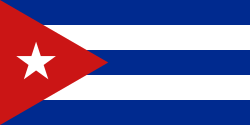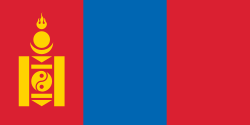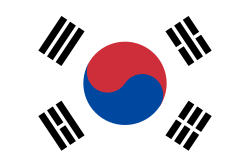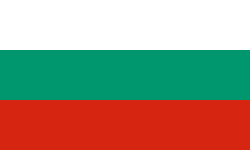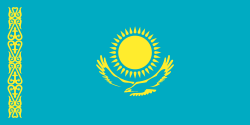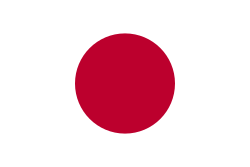Guillermo Rigondeaux
| Guillermo Rigondeaux | |
|---|---|
 Guillermo Rigondeaux (3. listopadu 2011) | |
| Osobní informace | |
| Datum narození | 30. září 1980 (44 let) |
| Místo narození | Santiago de Cuba |
| Některá data mohou pocházet z datové položky. | |
| Přehled medailí | ||
|---|---|---|
| zlato | LOH 2000 | váha bantamová |
| zlato | LOH 2004 | váha bantamová |
| Mistrovství světa amatérů v boxu | ||
| zlato | MS 2001 | do 56 kg |
| zlato | MS 2005 | do 56 kg |
Guillermo Rigondeaux Ortiz (* 30. září 1980 Santiago de Cuba) je kubánský boxer bantamové a pérové váhy, známý pod přezdívkou „Šakal“.
Jako amatér vyhrál 243 ze 247 zápasů, do nichž nastoupil. Je dvojnásobným olympijským vítězem z let 2000 a 2004, vyhrál mistrovství světa amatérů v boxu 2001 a 2005, Panamerické hry 2003 a Světový pohár v boxu 2002, 2005 a 2006.
V roce 2007 opustili Rigondeaux a jeho týmový kolega Erislandy Lara kubánskou výpravu na Panamerických hrách v Rio de Janeiro, byli však zadrženi brazilskou policií kvůli propadlým vízům a odesláni na Kubu. Podle verze případu uvedené v kubánských médiích se skrývali kvůli porušení životosprávy, ale pak se přihlásili policii a dobrovolně se vrátili do vlasti. Byli potrestáni vyřazením z reprezentace.[1]
V roce 2008 Rigondeaux emigroval z Kuby na pašeráckém člunu a podepsal profesionální smlouvu s firmou Arena Boxing.[2] Stal se v roce 2012 mistrem světa organizace World Boxing Association a v roce 2013 podle The Ring a World Boxing Organization.[3] Jeho bilance v profesionálním ringu je devatenáct vítězství a jedna porážka.
Reference
Externí odkazy
 Obrázky, zvuky či videa k tématu Guillermo Rigondeaux na Wikimedia Commons
Obrázky, zvuky či videa k tématu Guillermo Rigondeaux na Wikimedia Commons - Guillermo Rigondeaux v databázi Olympedia (anglicky)
- https://www.premierboxingchampions.com/guillermo-rigondeaux
Média použitá na této stránce
Olympic Rings without "rims" (gaps between the rings), As used, eg. in the logos of the 2008 and 2016 Olympics. The colour scheme applied here was specified in 2023 guidelines.
Olympic Rings without "rims" (gaps between the rings), As used, eg. in the logos of the 2008 and 2016 Olympics. The colour scheme applied here was specified in 2023 guidelines.
US Flag with 45 stars. In use 4 July 1896–3 July 1908. Created by jacobolus using Adobe Illustrator, and released into the public domain. This flag was used during the Spanish-American War.
US Flag with 45 stars. In use 4 July 1896–3 July 1908. Created by jacobolus using Adobe Illustrator, and released into the public domain. This flag was used during the Spanish-American War.
Autor: Fornax, Licence: CC BY-SA 3.0
South African Red Ensign from 1912 until 1951.
Autor: F l a n k e r, Licence: CC BY-SA 2.5
Flag of the Kingdom of Sardinia (1851-1861) and of the Kingdom of Italy (1861-1946). Use: Civil flag and ensign. In a governmental or a military context, the crowned version (see Crowned version) was always used (as State flag and naval ensign).
Autor: F l a n k e r, Licence: CC BY-SA 2.5
Flag of the Kingdom of Sardinia (1851-1861) and of the Kingdom of Italy (1861-1946). Use: Civil flag and ensign. In a governmental or a military context, the crowned version (see Crowned version) was always used (as State flag and naval ensign).
The Canadian Red Ensign used between 1921 and 1957.
This image has compared for accuracy (mainly colors) using an image from World Statesmen. The only change is making the maple leaves green from red. This image has compared for accuracy (mainly colors) using an image from World Statesmen. The most recent version of this image has changed the harp into one with a female figure; see [http://flagspot.net/flags/ca-1921.html FOTW
Flag of Hungary from mid/late 1946 to 20 August 1949 and from 12 November 1956 to 23 May 1957.
Finská vlajka
(c) I, Cmapm, CC BY-SA 3.0
The flag of the Soviet Union (1955-1991) using a darker shade of red.
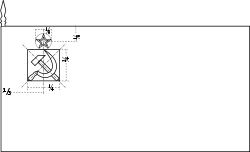
(c) I, Cmapm, CC BY-SA 3.0
The flag of the Soviet Union (1955-1991) using a darker shade of red.

Variant version of a flag of Japan, used between January 27, 1870 and August 13, 1999 (aspect ratio 7:10).
Zelený pruh má znázorňovat většinové katolické obyvatelsto Irska, oranžový pruh reprezentuje protestantskou menšinu a bílý pruh uprostřed znázorňuje mír a harmonii mezi nimi.
Autor: Reysanchez, Licence: CC BY-SA 3.0
Guillermo Rigondeaux en su campo de entrenamientos de Florida
Autor: Fornax, Licence: CC BY-SA 3.0
South African Red Ensign from 1912 until 1951.











